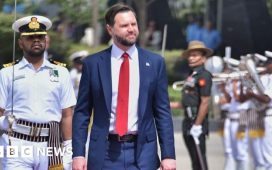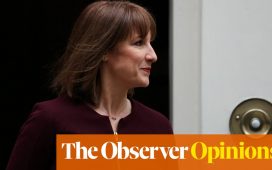Unlock the Editor’s Digest for free
Roula Khalaf, Editor of the FT, selects her favourite stories in this weekly newsletter.
The UK government will on Monday announce new measures to ban elite Kremlin-linked officials and oligarchs from entering Britain, in a show of solidarity with Kyiv on the third anniversary of the Ukraine war.
Ministers will expand the criteria for exclusions to the UK to include anyone who provides significant support to, or enjoys access at the highest levels of, the Russian government, the Home Office said.
Individuals who owe their significant status or wealth to the Russian state will also be covered by the move, it added, amid growing concern about Kremlin-connected figures who denounce British values in public while enjoying the benefits of the UK in private.
The definition of those covered by the move is intentionally broad, according to officials.
UK security minister Dan Jarvis said the move would “slam the door shut to the oligarchs who have enriched themselves at the expense of the Russian people whilst bankrolling this illegal and unjustifiable war”.
He added: “My message to Putin’s friends in Moscow is simple: you are not welcome in the UK.”
His intervention came after Sir Keir Starmer reaffirmed Britain’s “ironclad” support for Kyiv and repeated demands for Ukraine to be at the heart of any peace talks, as the prime minister prepares to meet US President Donald Trump this week.
The measures come as the UK prepares to unveil its largest raft of sanctions against Russia since the early days of the war, which are expected to be closely aligned with a significant EU package.
UK foreign secretary David Lammy said the move aimed to further “turn the screws on Vladimir Putin’s Russia” to erode its military machine and reduce revenues “fuelling the fires of destruction in Ukraine”.
The fresh designations, expected to target Russia’s aluminium and oil exports, come as fears grow in European capitals that the US president could ease sanctions on Moscow as part of a peace deal brokered with Putin without European participation.
On Sunday, Starmer told the Scottish Labour conference in Glasgow that Britain “will not be cowed by threats or tyranny”, but warned “we can’t cling to the comforts of the past” in an oblique reference to US support.
Europe must “do more” to defend itself and “take responsibility for our security”, the prime minister said.
A day earlier Starmer spoke with Volodymyr Zelenskyy, reiterating “the UK’s ironclad support for Ukraine” and its commitment to “securing a just and enduring peace to bring an end to Russia’s illegal war”, according to Downing Street.
Starmer is preparing to hold discussions about Ukraine’s future with Trump at the White House on Thursday. French President Emmanuel Macron will also be in Washington for similar talks on Monday.
European leaders are pursuing diplomacy amid ratcheting tensions between Trump and Zelenskyy. Many fear the US will make a deal with Russia that crushes Ukraine and hurts the region’s long-term security.
To try to prevent that, Macron plans to argue to Trump that rushing into a ceasefire that would favour Russia is the wrong approach, arguing instead for a comprehensive peace agreement with specific, long-term security guarantees for Ukraine.
Macron and Starmer are both expected to seek to persuade Trump that safeguarding Ukraine’s sovereignty is essential to deter future Russian aggression, according to officials.
He and Starmer spoke on Sunday, pledging to “show united leadership in support of Ukraine in the face of Russian aggression” and agreeing to stay in close contact, according to Number 10. Starmer also spoke to Nato secretary-general Mark Rutte and the Canadian prime minister Justin Trudeau.
Relations between Trump and Zelenskyy have rapidly deteriorated with the US president calling his Ukrainian counterpart a “dictator”, after Zelenskyy said Trump was living in a disinformation bubble in response to his earlier claim that Kyiv had “started” the war with Moscow.
According to western officials, Britain and France have started sketching out proposals for a “reassurance force” that would rely on western air power, backed by the US, to enforce any ceasefire deal in Ukraine and deter potential Russian aggression. A troop deployment is also under discussion.
Starmer has been clear that a “US backstop” would be crucial to such a plan, meaning that the US would continue to provide key capabilities that European armies cannot, such as missile defence, technological and logistics support.






